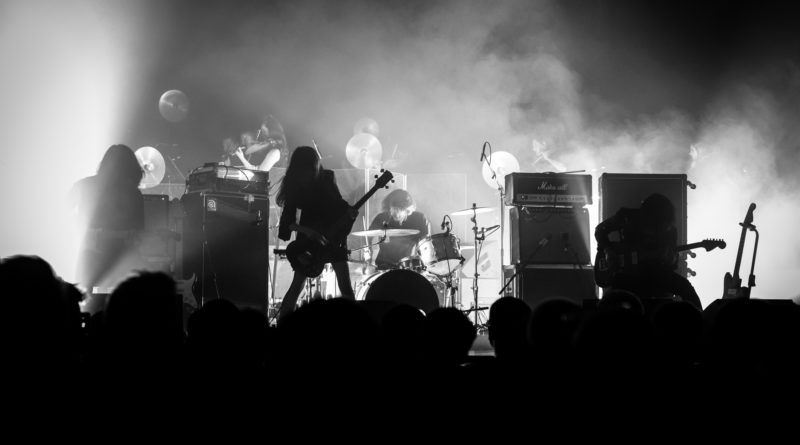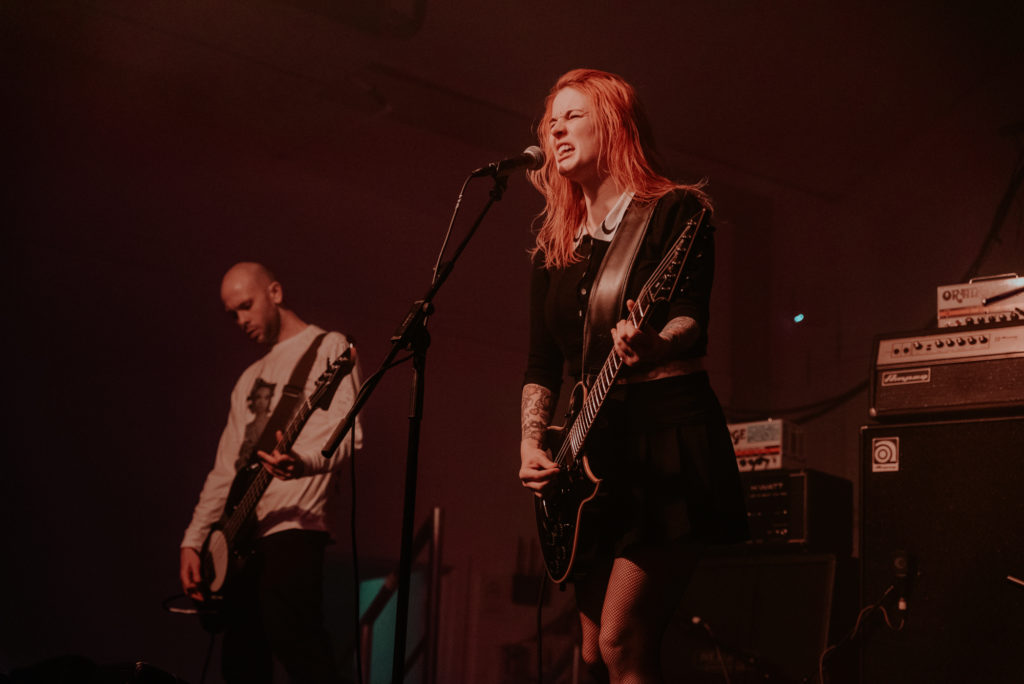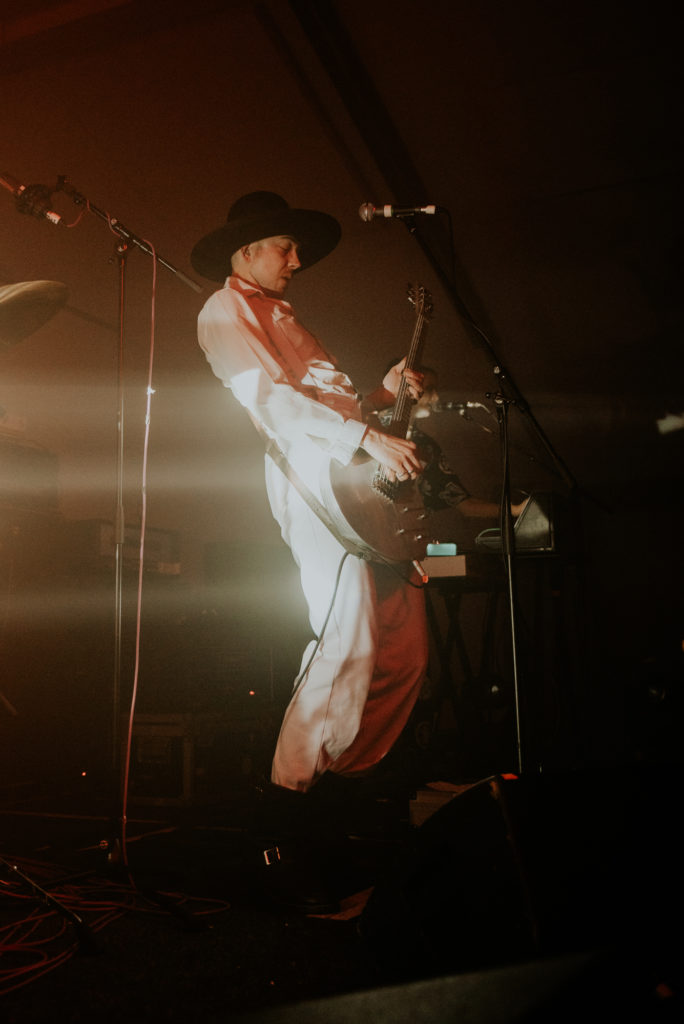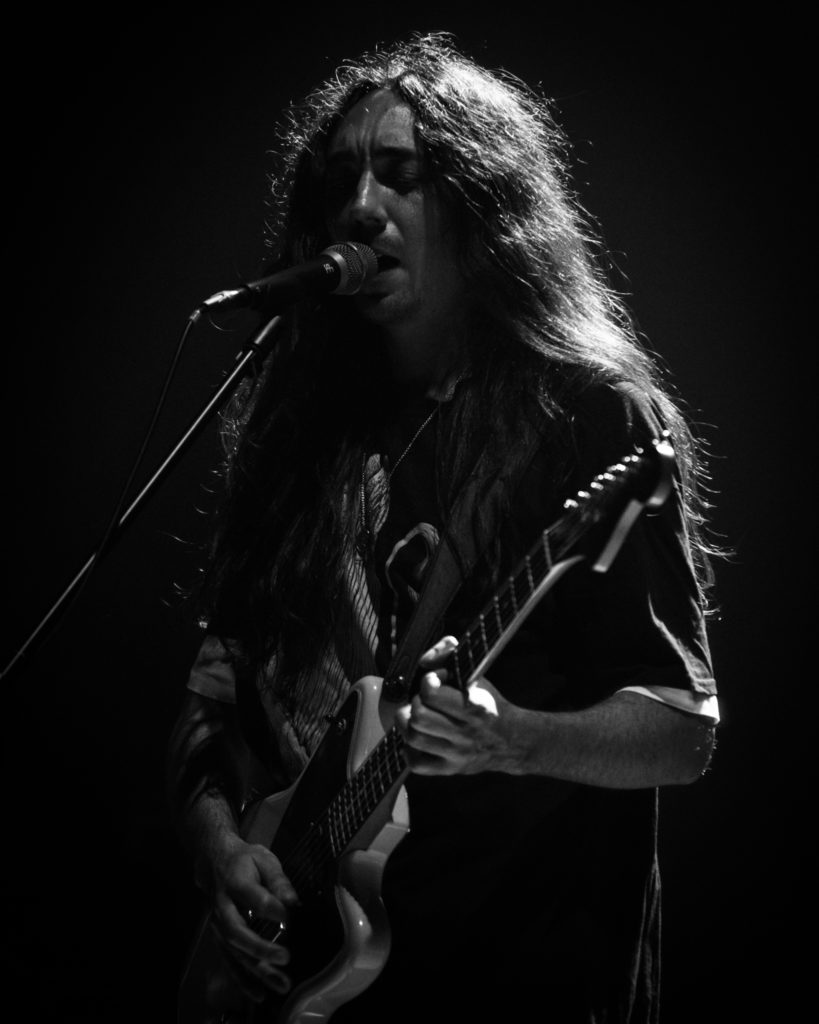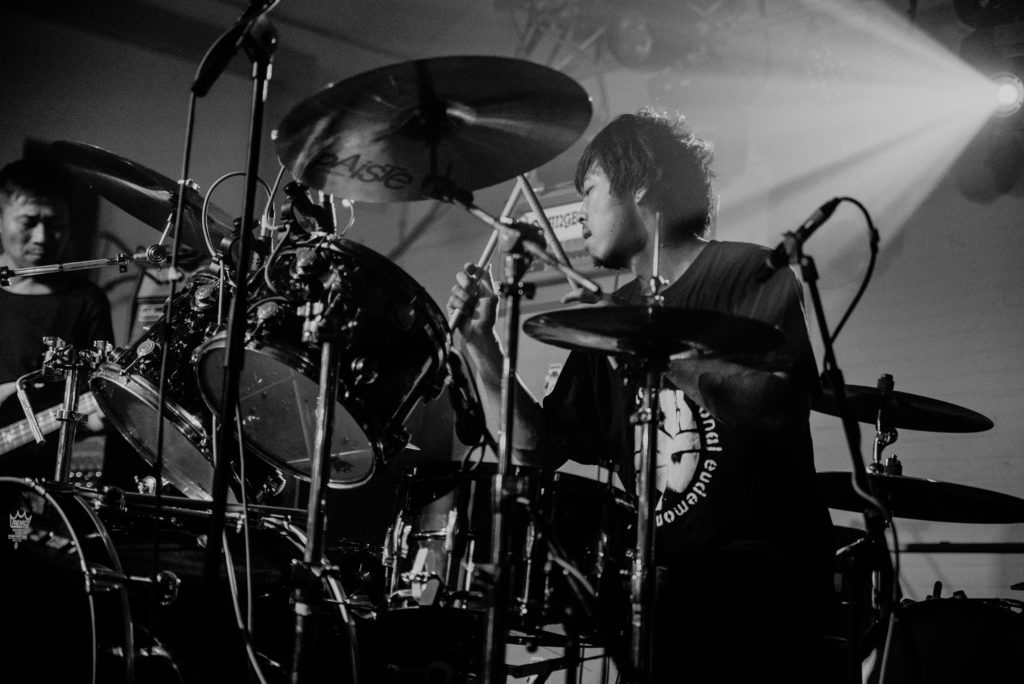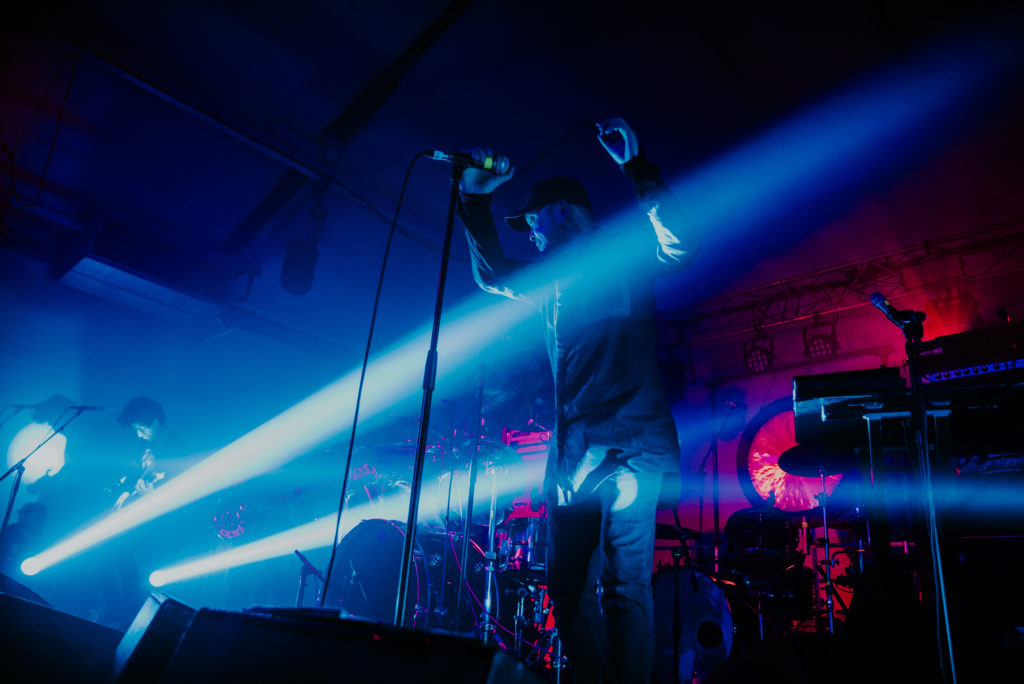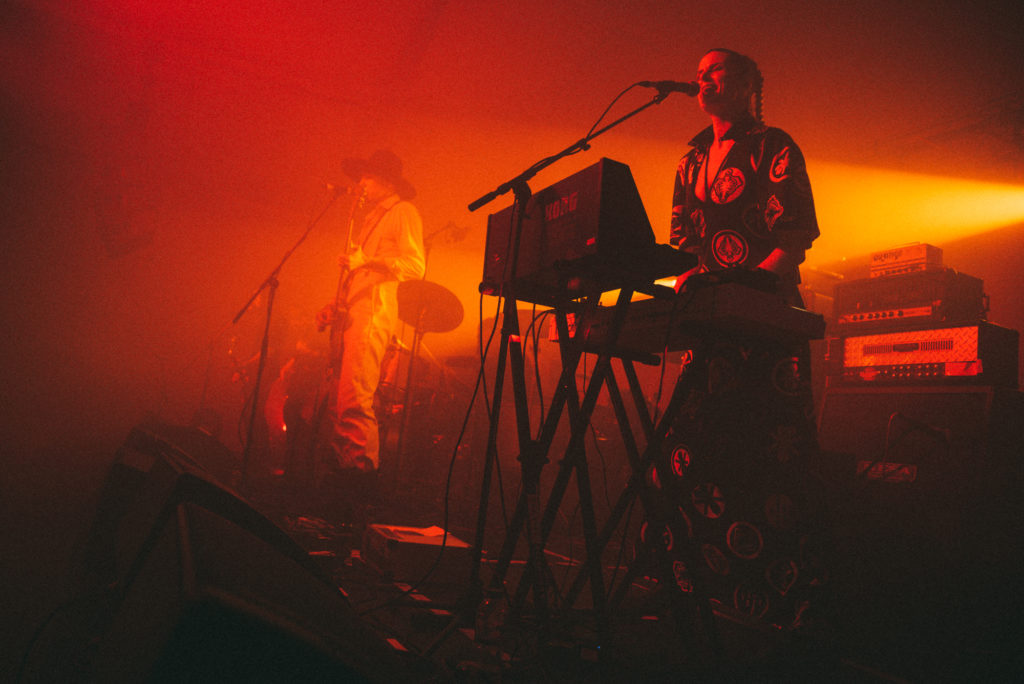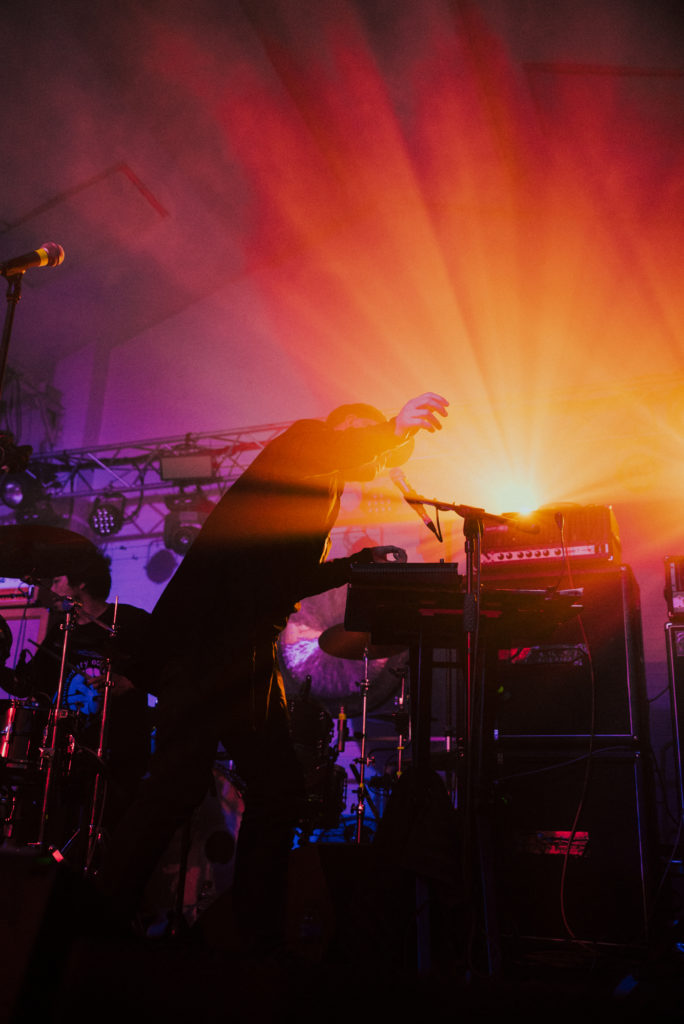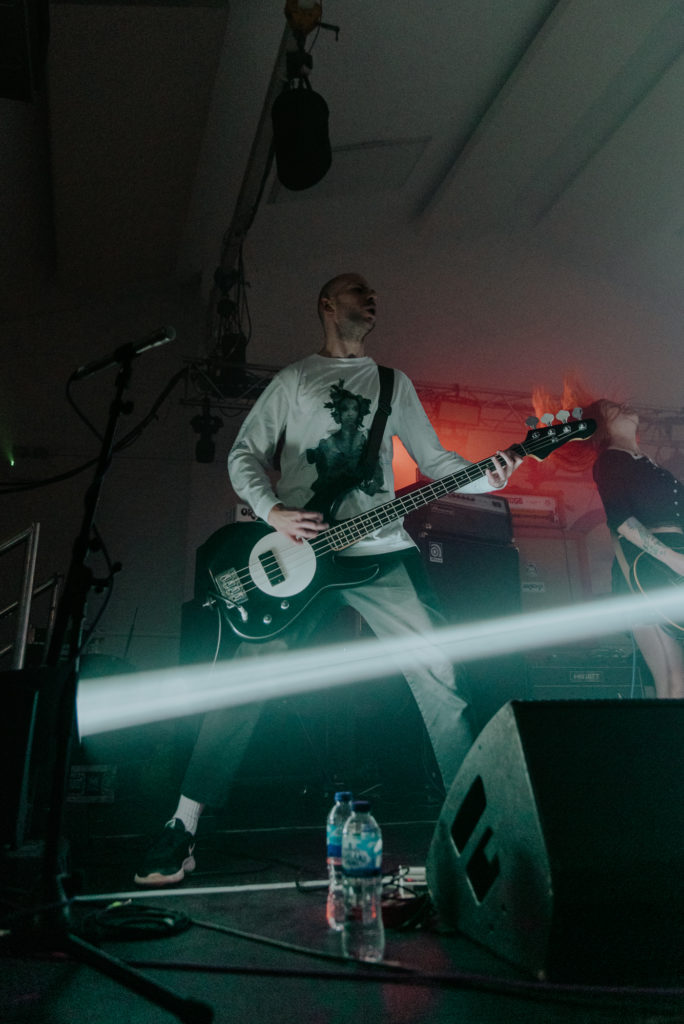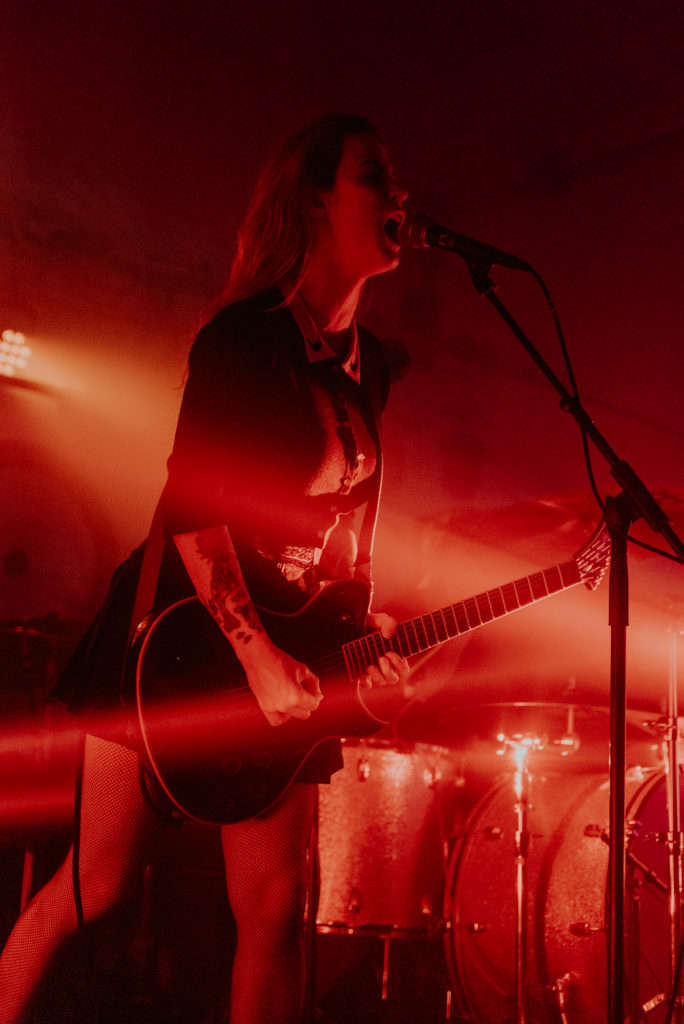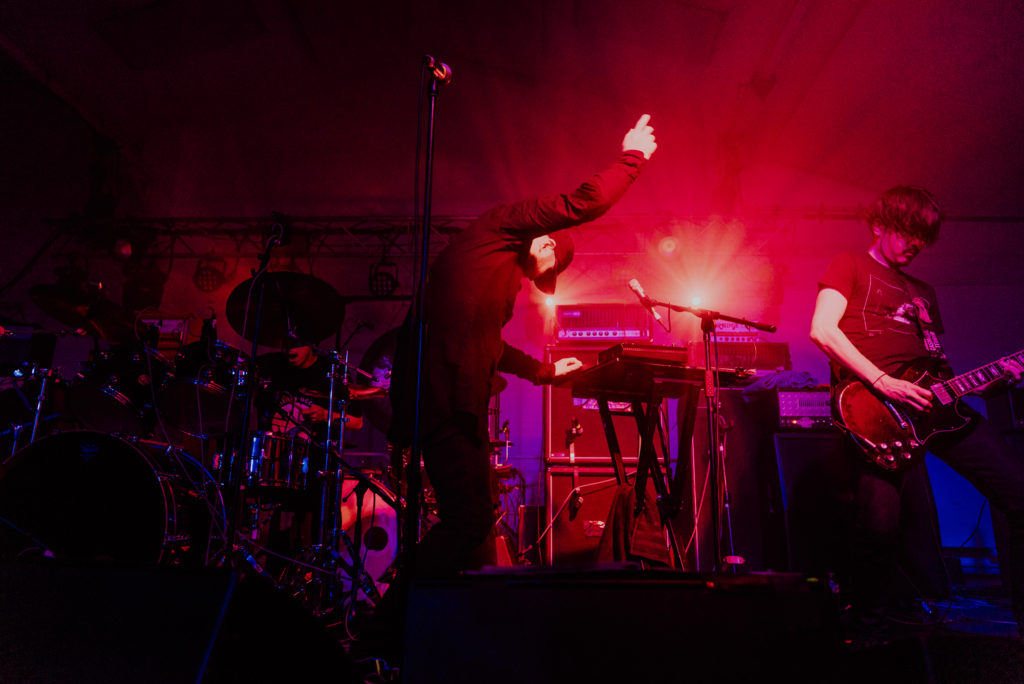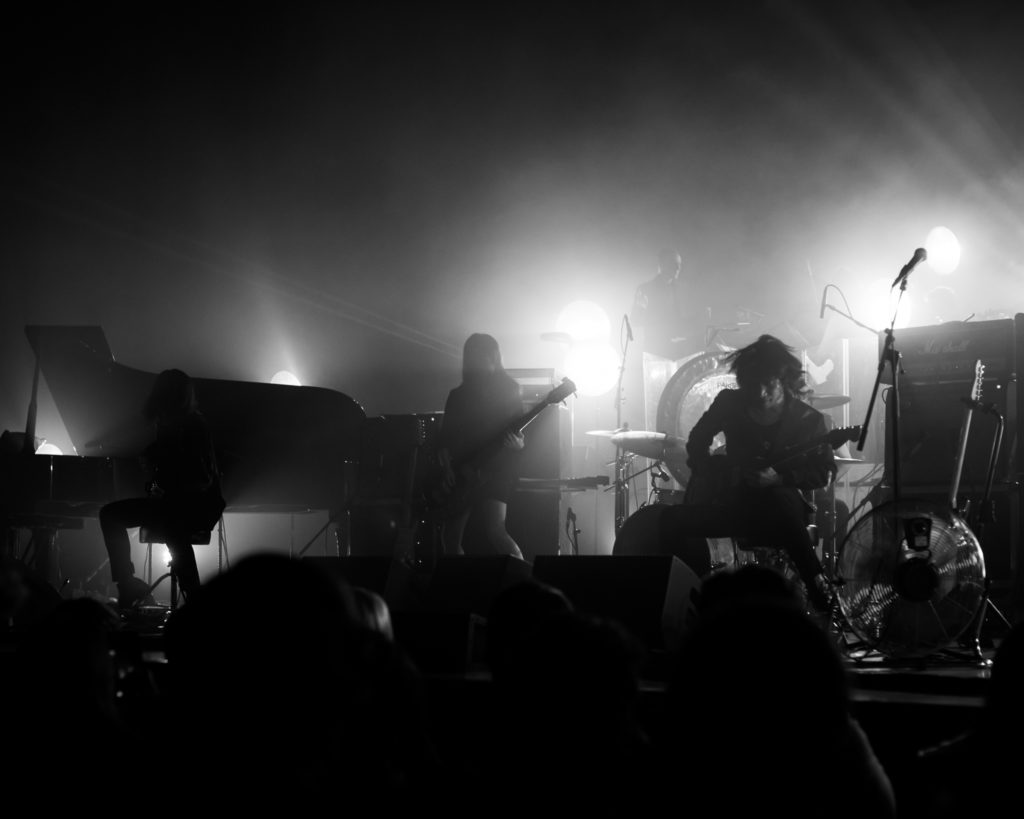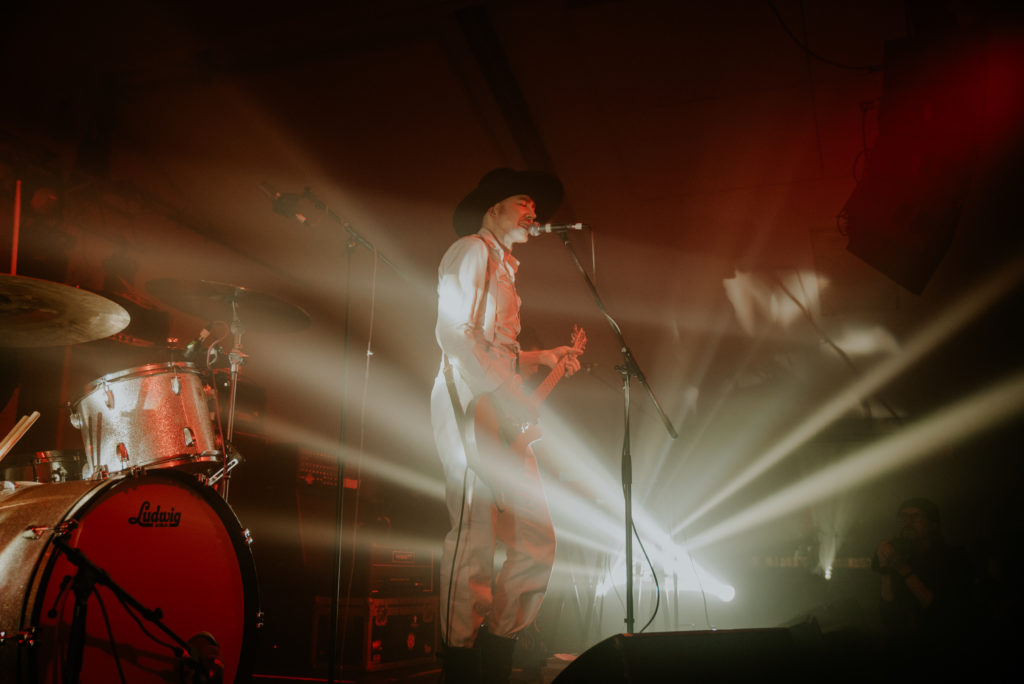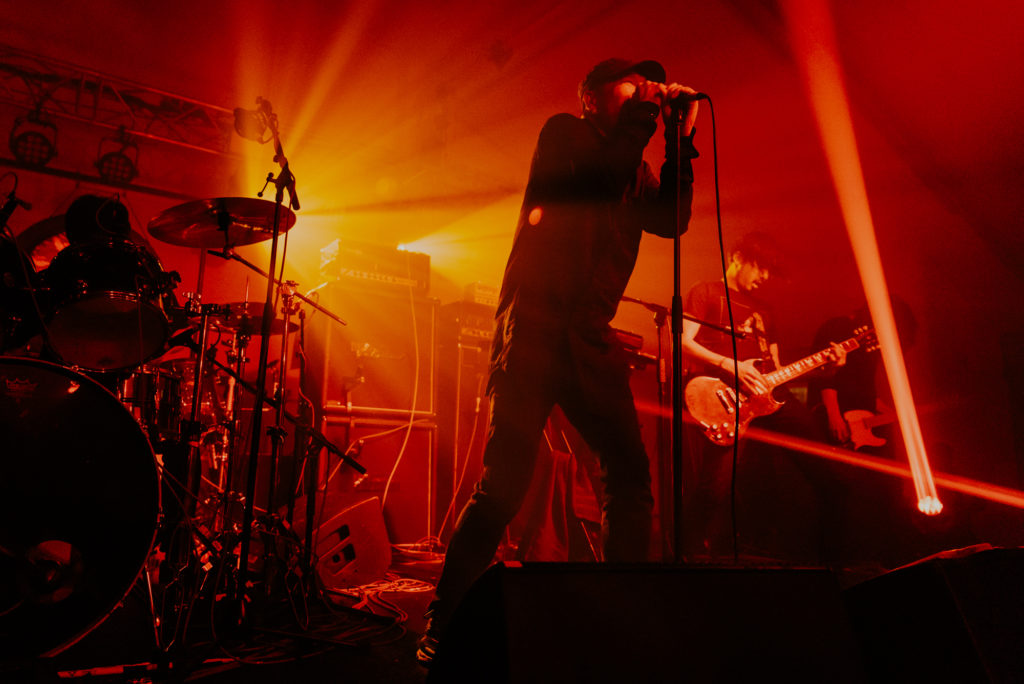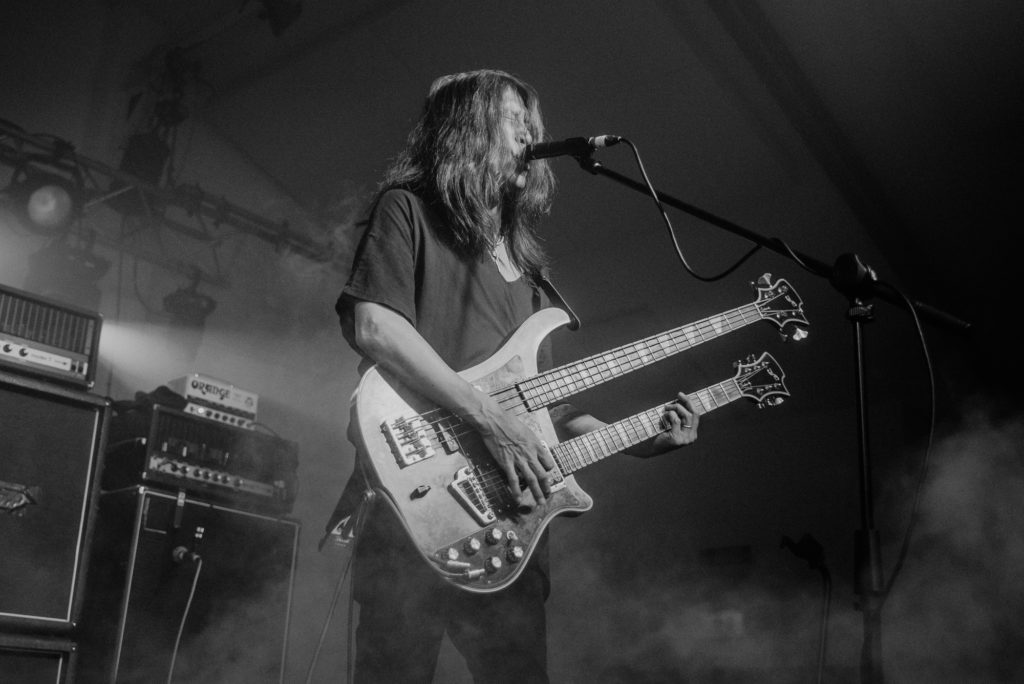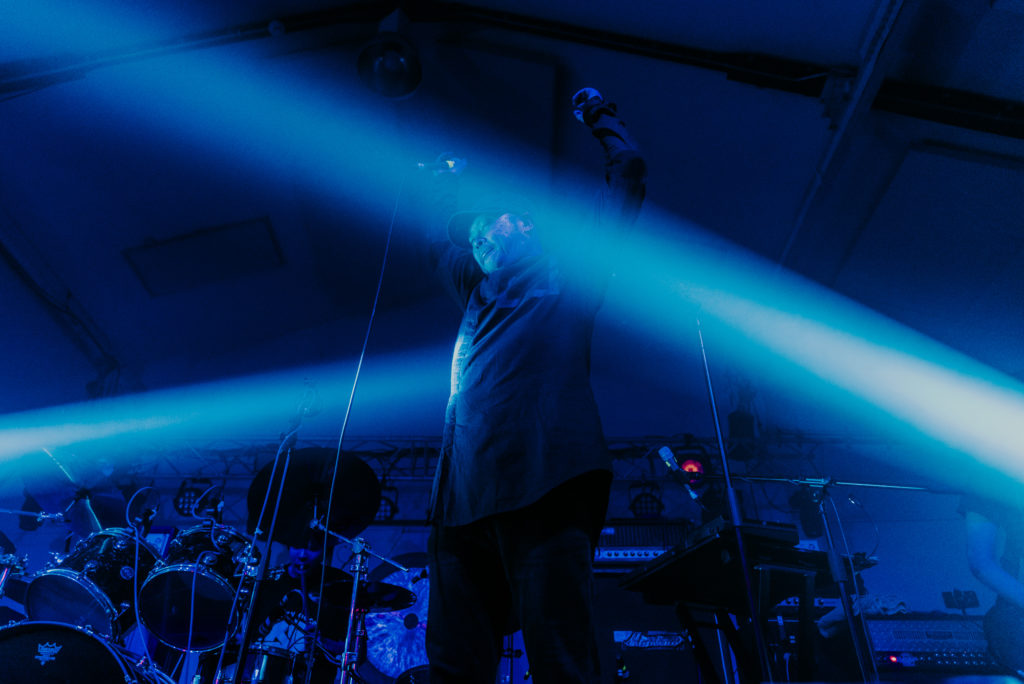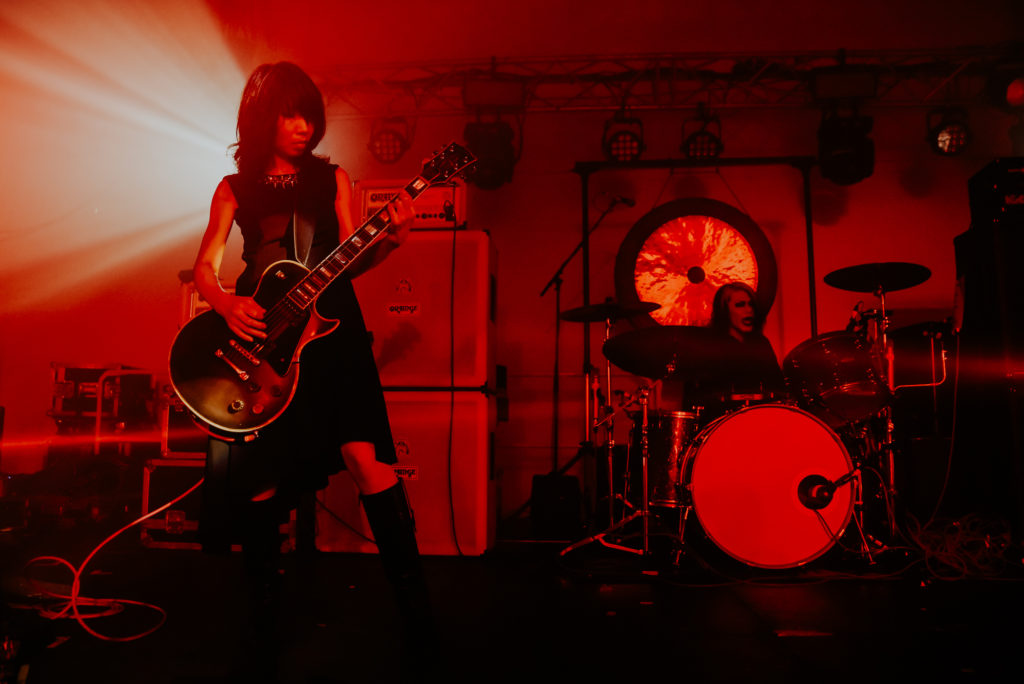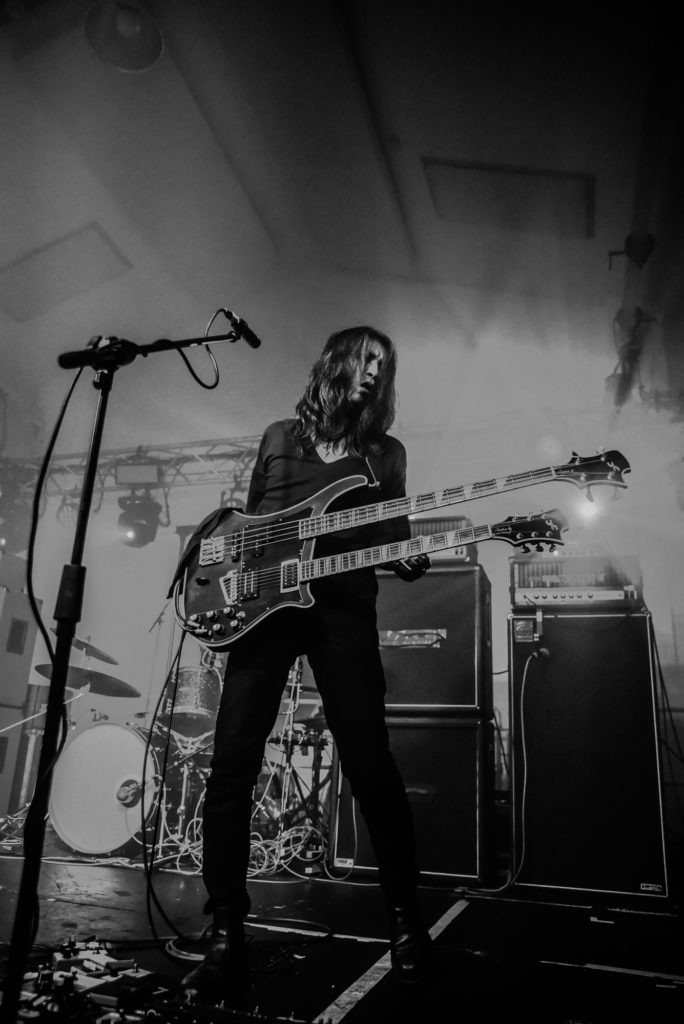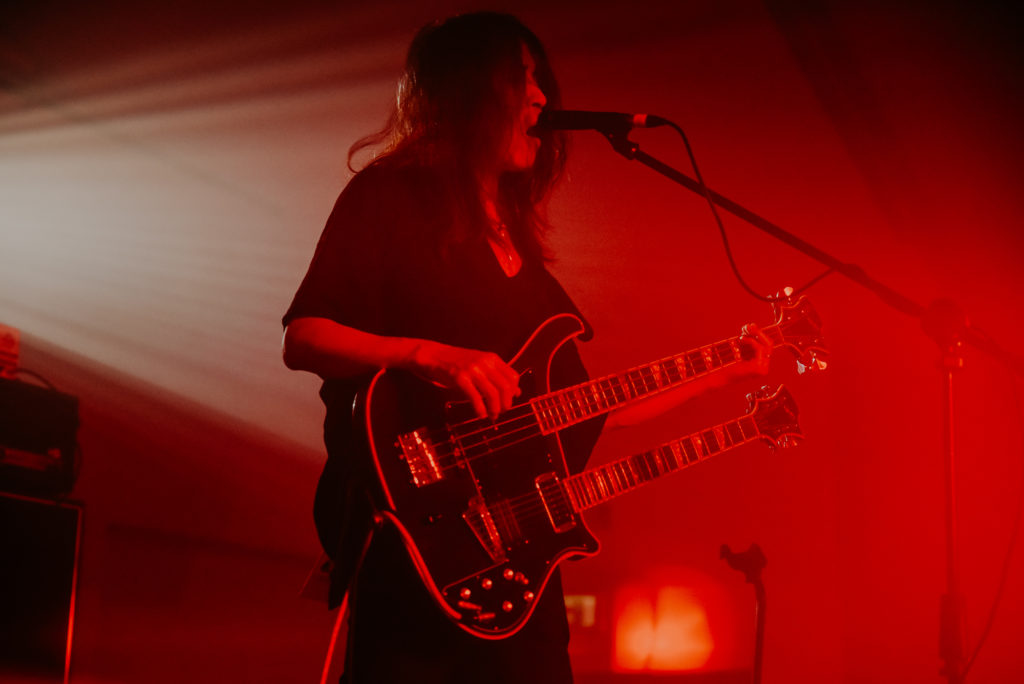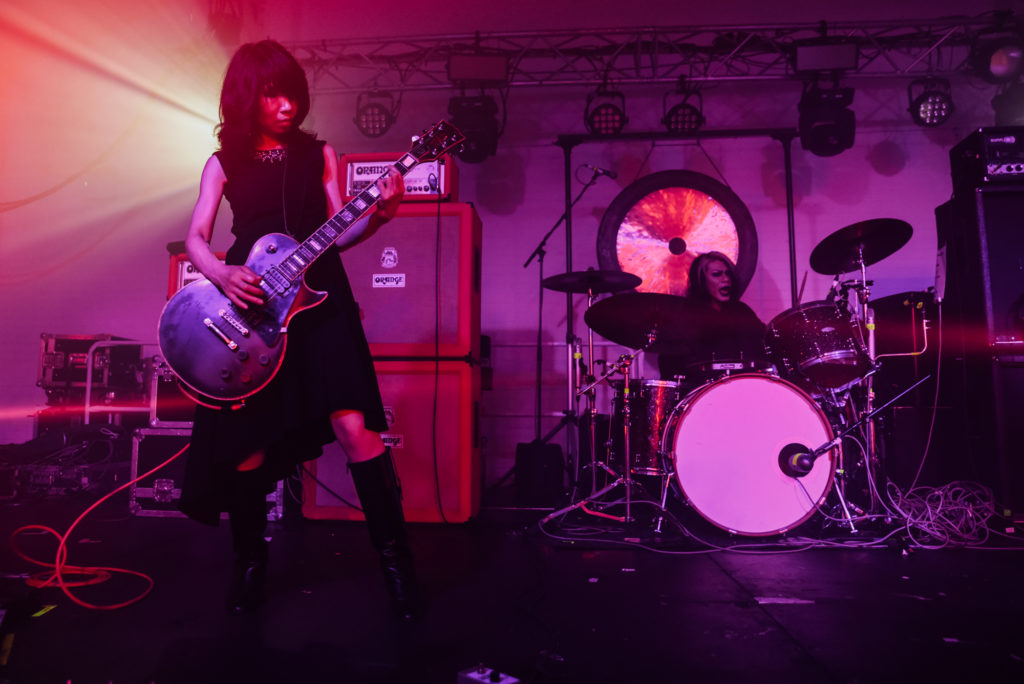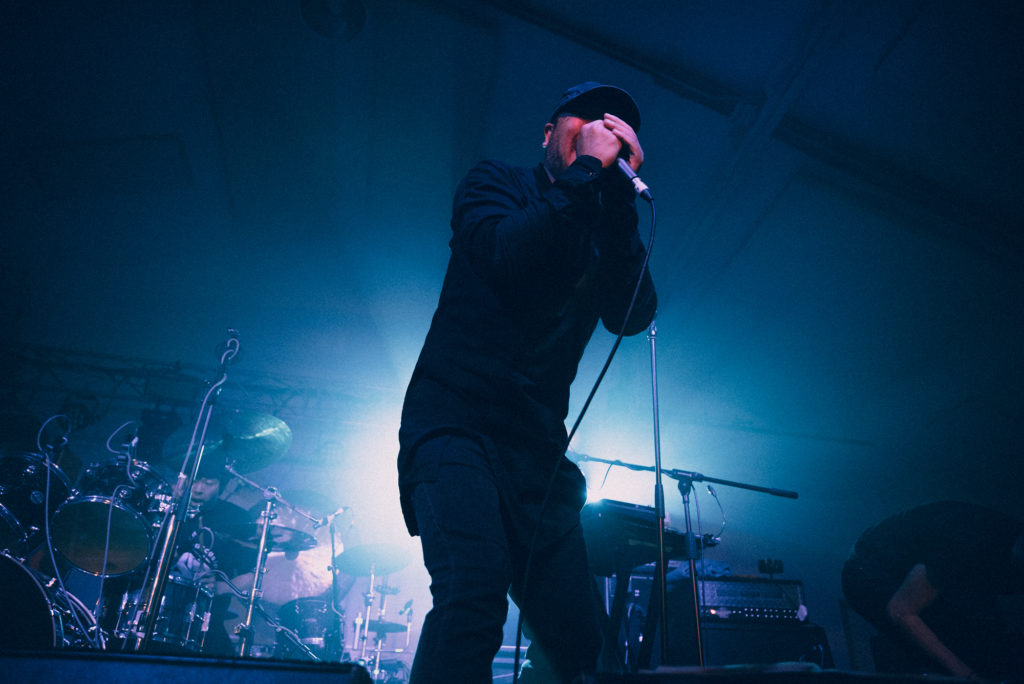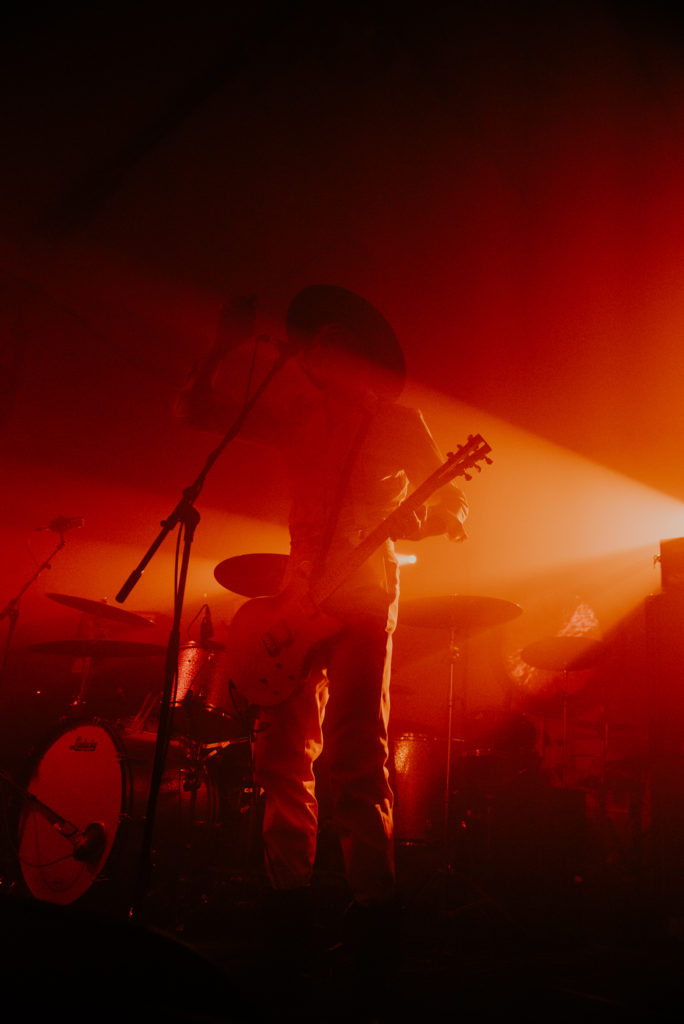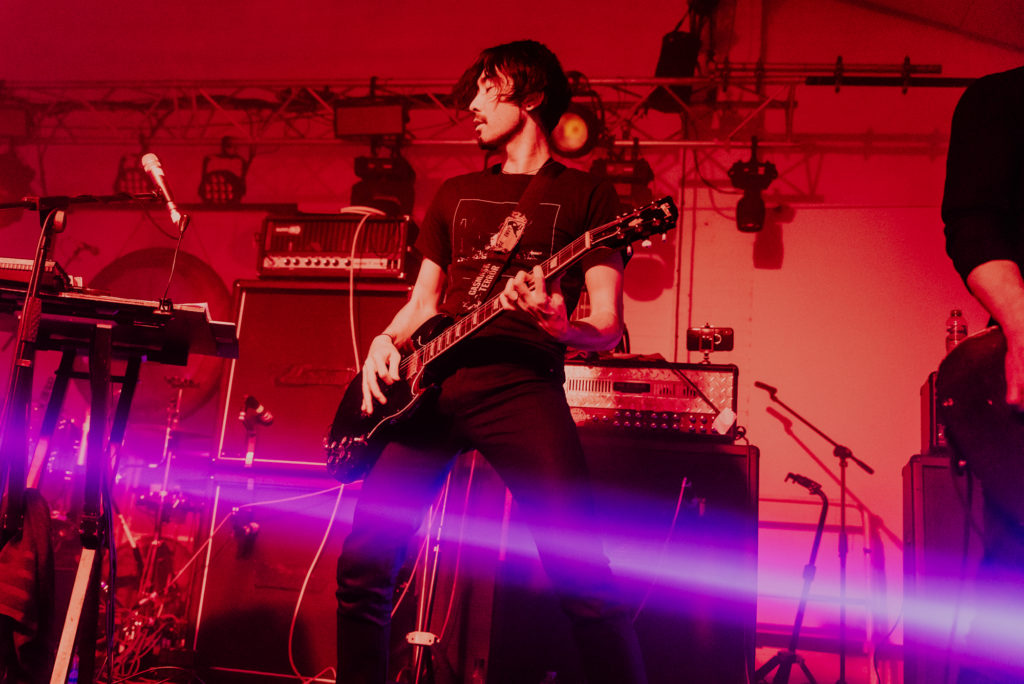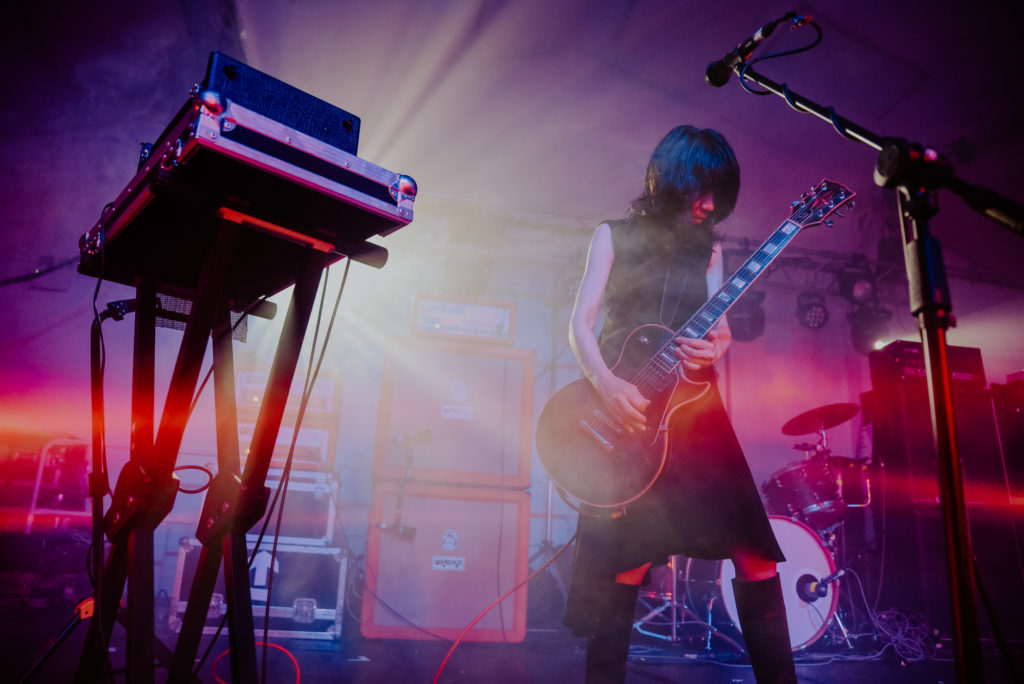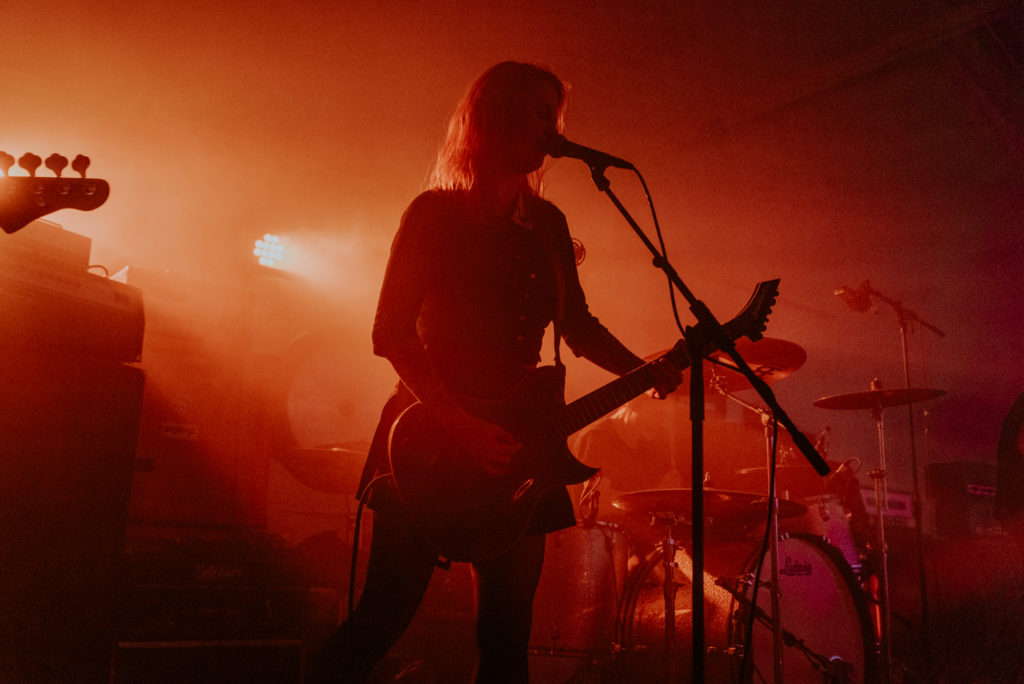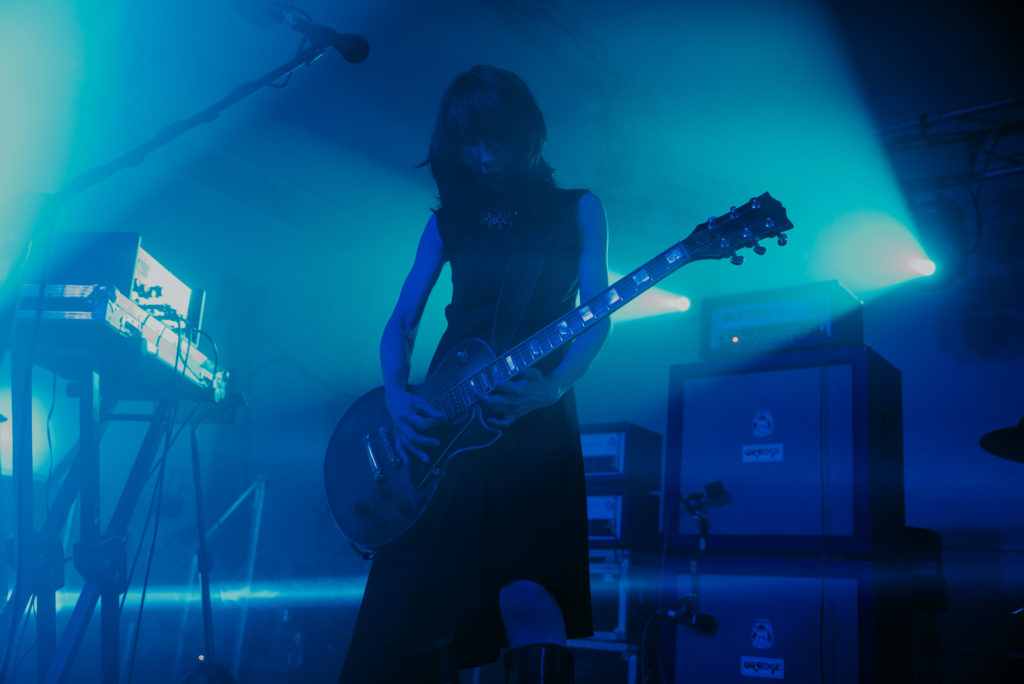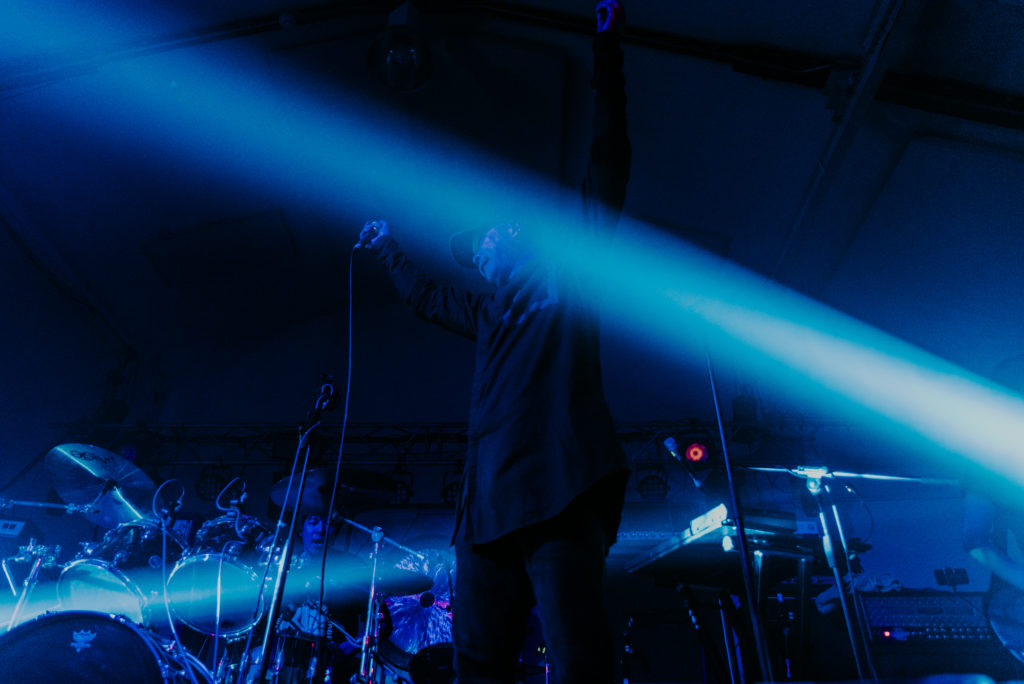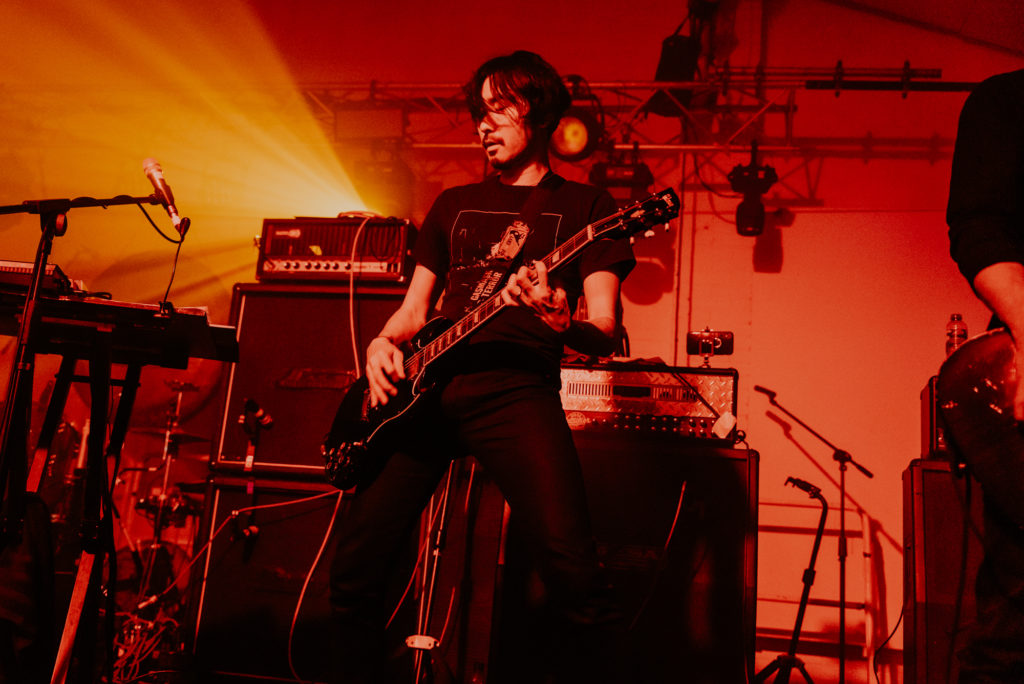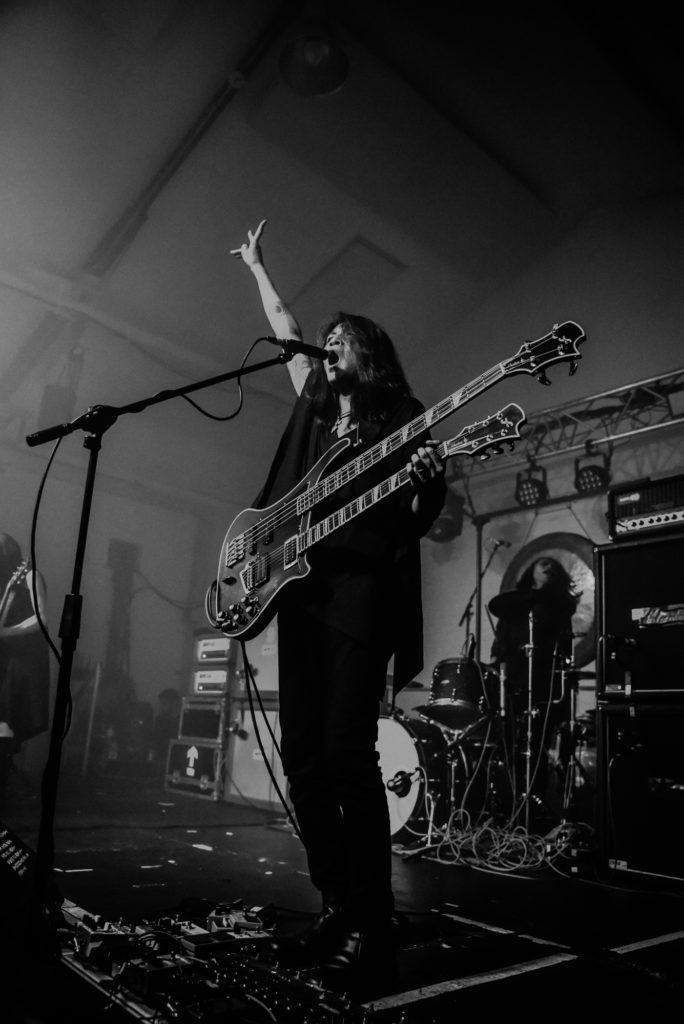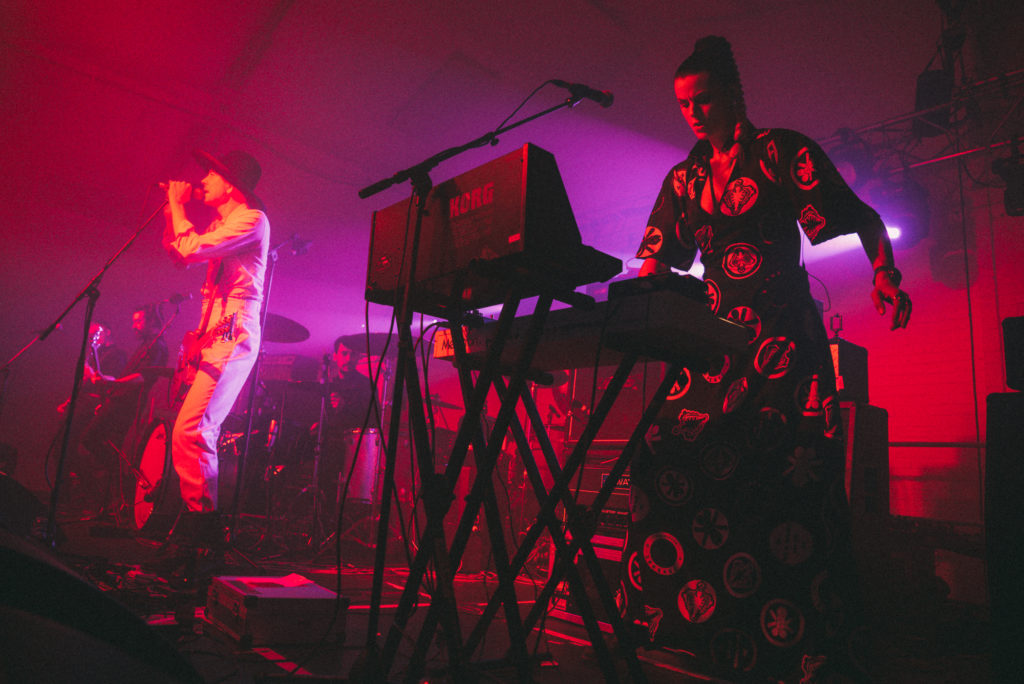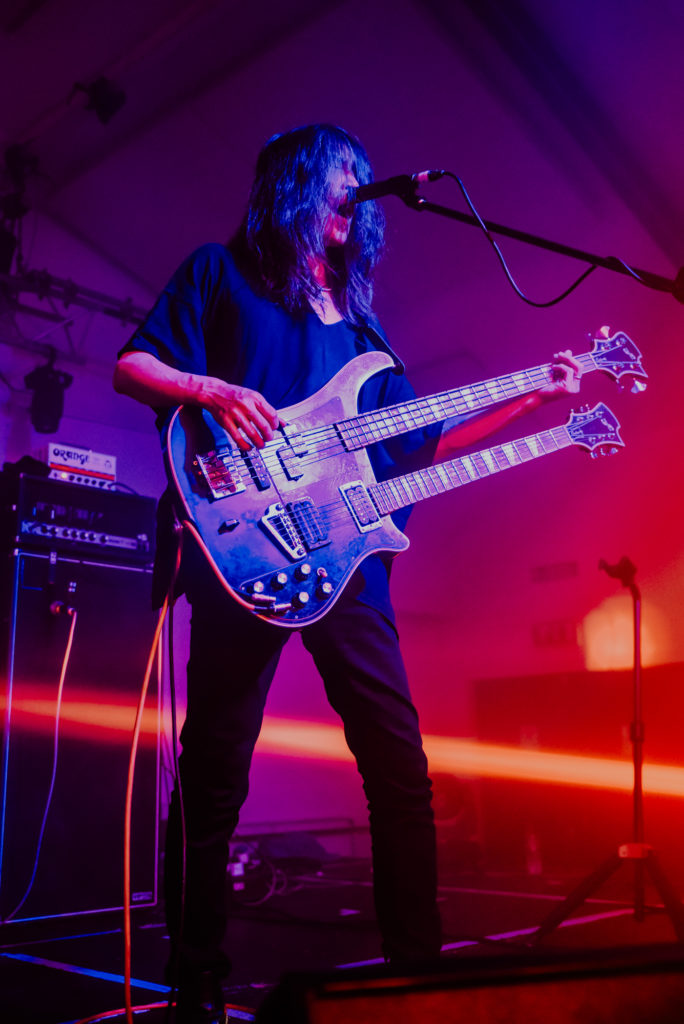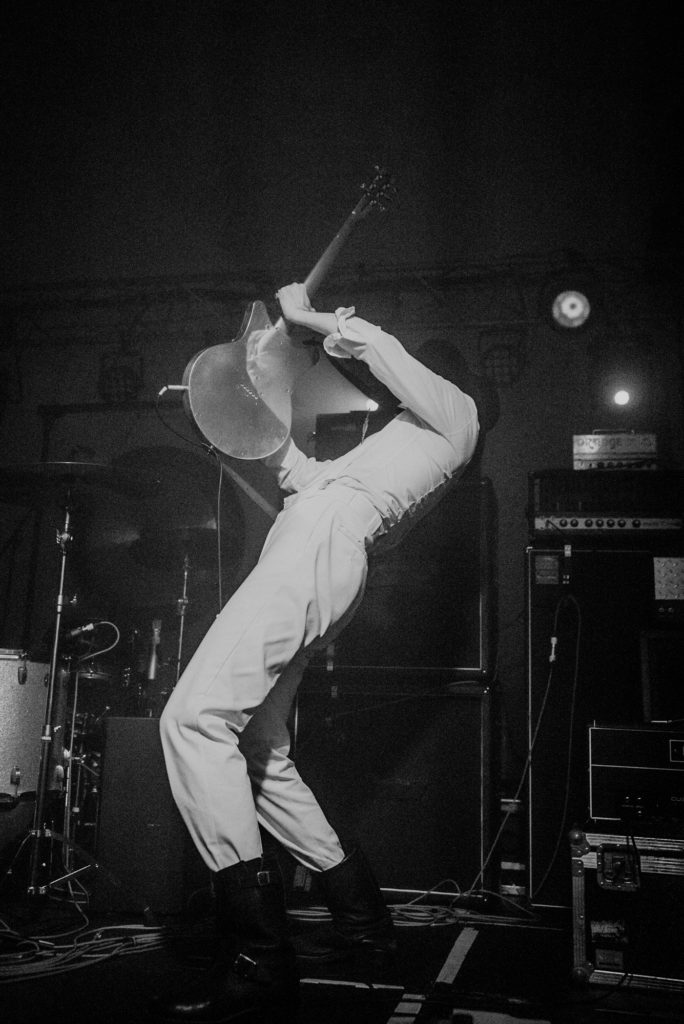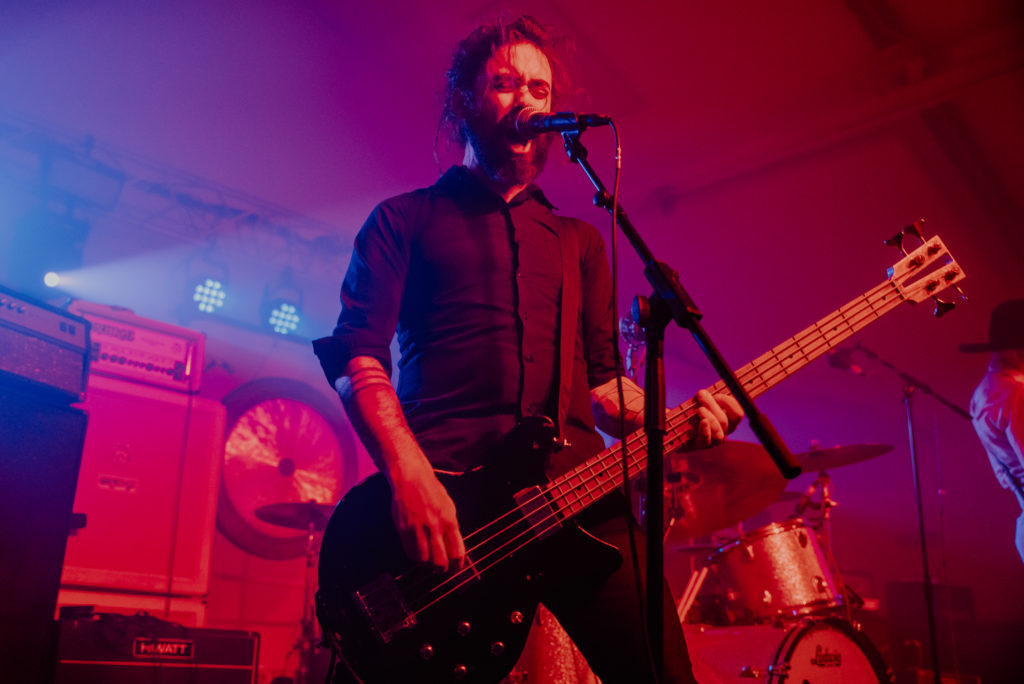LIVE REVIEW: MONO: Beyond The Past Anniversary Shows
Ten bands, playing across three venues, over two days. There was every indication ahead of time that Beyond The Past would exceed the scale of most anniversary events. Celebrations are in order, as MONO – whose musical development has, in many ways, been drawn along the lines of excess – reach their twentieth anniversary. Across ten studio albums, three splits and four EPs, MONO have elaborated upon their unique oeuvre: heartfelt and dramatic contemporary classical music, played with the amplified intensity of a rock ensemble, expressing joy and sorrow in equal measure. The curated line-up features performances from friends and peers, each of whom figure as exemplary elements in MONO‘s diverse pool of influence. The narrative of the performances across the weekend sets out, individually and in detail, aspects of MONO‘s sound throughout their career, before they are gathered and galvanised in a final and exclusive performance from the band themselves, with accompaniment from The Platinum Anniversary Orchestra.
Friday – Oval Space
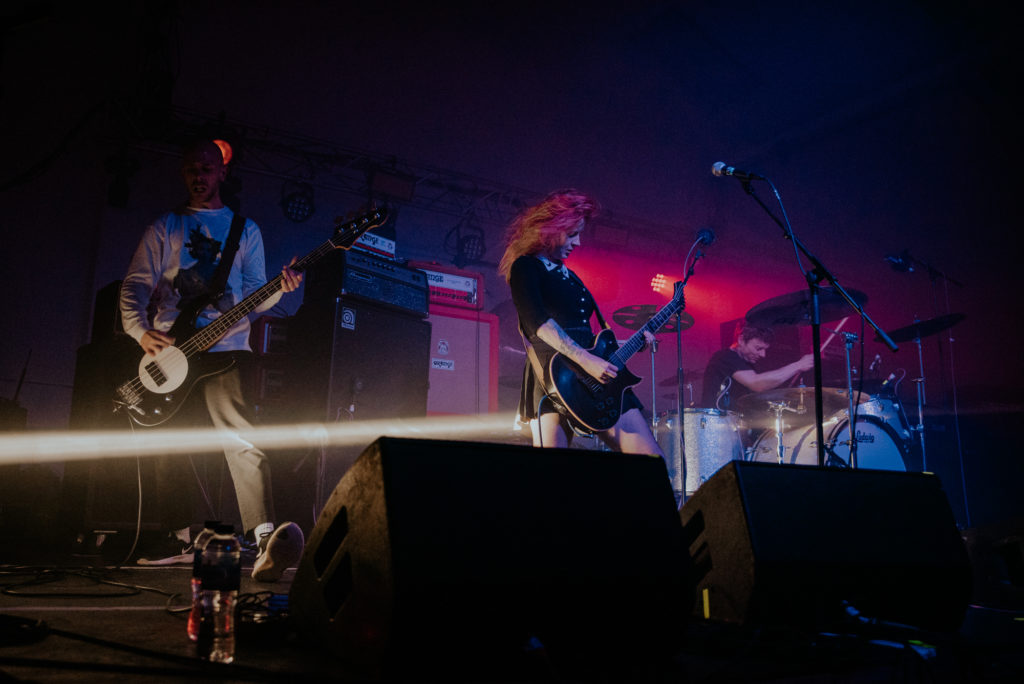
Beyond The Past opens with a performance from Bristolian post-hardcore troupe SVALBARD, who deliver soaring post-rock melodies atop the righteous fury of hardcore. Their politicised melodrama comes to the fore on closing number Revenge Porn; a defiant protest against the malicious misappropriation of intimate images. As with much protest art, the emphasis tends to fall on the protest rather than the art. It will be interesting to see what musical innovations SVALBARD can bring to reify their political message as their nascent career progresses.
Rating: 7/10
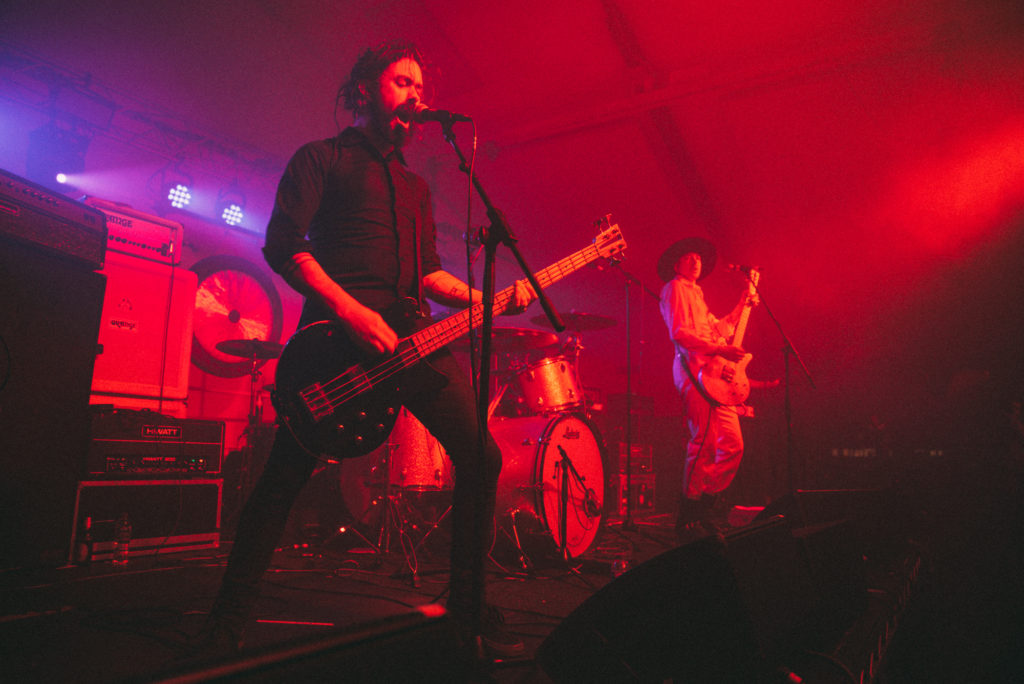
“We are ÅRABROT from Norway. We play rock music,” explains frontman and founder Kjetil Nernes, for the benefit of those of us who have become momentarily lost in the band’s playfully experimental set. The five-piece are a byword for versatility; deftly incorporating a wide range of textures, arrangements and styles into their set – which includes a novel re-imagining of Nina Simone‘s Sinnerman. Quite apart from their musical exuberance, there is a certain Northern-European reserve in their performance, which doesn’t quite meet the energy of the room: while ÅRABROT embody the dadaist eccentricity of THE MELVINS, they do so with a somewhat subdued tone.
Rating: 6/10
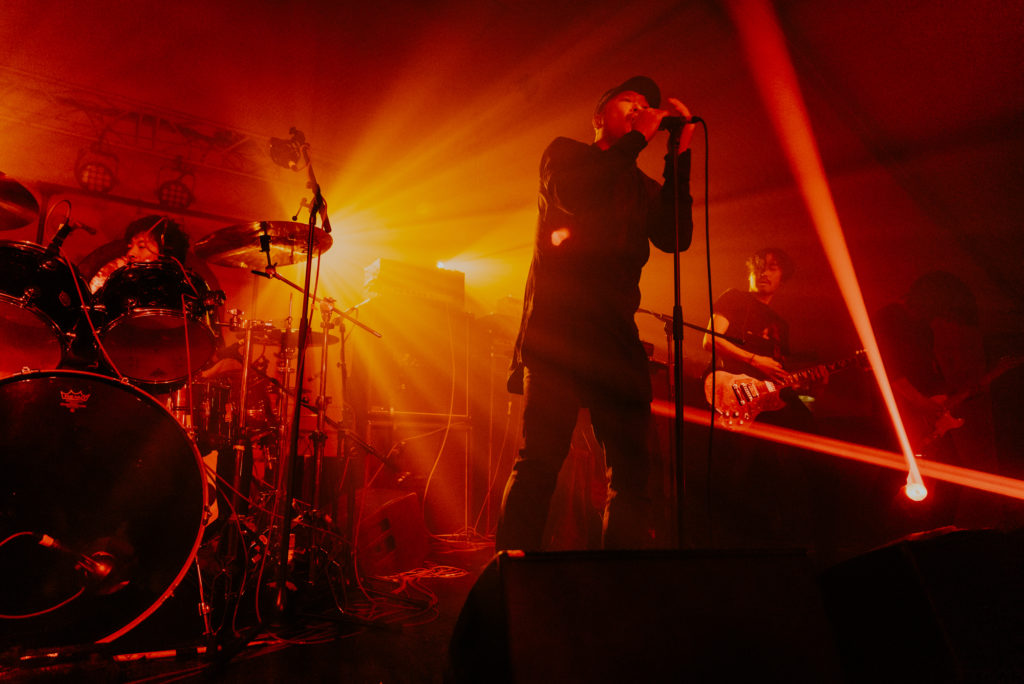
The Japanese post-hardcore outfit have been away from UK shores for some eight years, and there is a palpable enthusiasm in the room as they take to the stage. The six-piece, now reunited with original vocalist Tetsuya Fukagawa, are a sight to behold as they launch into Chain Wandering Deeply, spanning the whole of the Oval Space’s broad stage. While many groups playing in the vein of hardcore are prone to slowly losing the youthful vigour demanded of the style, ENVY remain on form as they deliver a fervent, career-spanning set to an appreciative reception. The rich dynamics of Scene make a compelling case for their three live guitarists, who conjure an intricate wall of sound even in the piece’s lulls. There is wounded anger in ENVY‘s music – particularly in Fukagawa’s vulnerable, desperate cries – but there is also hope, light and warmth in the noisy post-hardcore melange. The band showcase plenty of new material from the forthcoming album, The Fallen Crimson, which sees them leaning into a more reflective, post-rock orientated sound. ENVY complete their set with a nod to the past, deploying the raw emotive clout of Farewell to Words, and leave the stage to rapturous applause.
Rating: 8/10
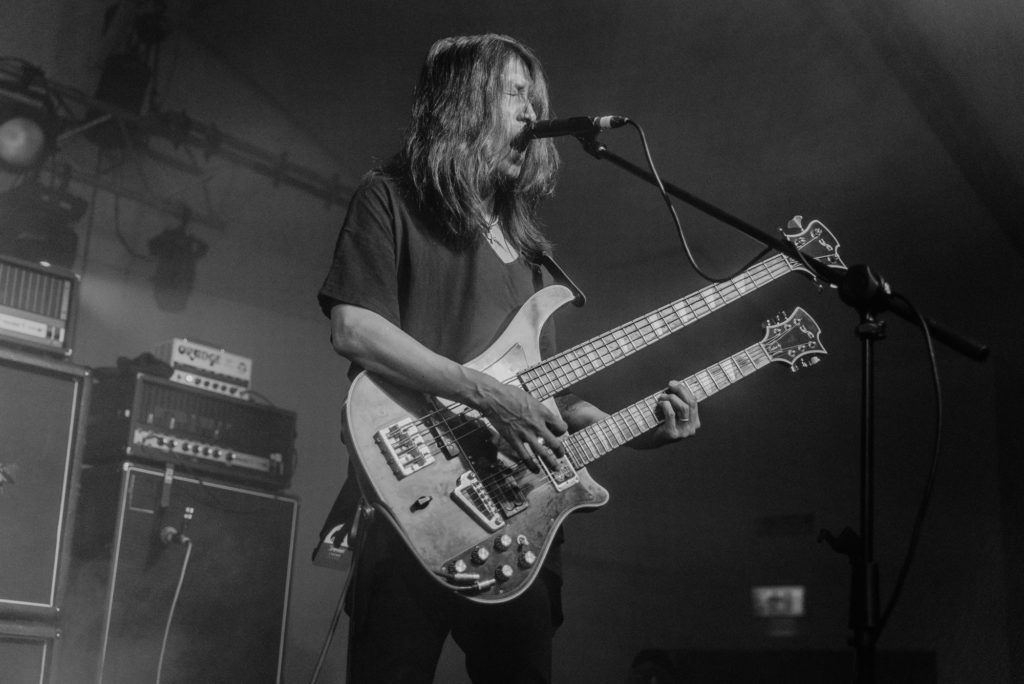
There is always a sense of uncertainty when Japanese experimentalists BORIS take to the stage, as their career has been defined by some fairly unconventional choices: releasing two different albums under the same name at the same time, releasing a record designed to be played on two turntables simultaneously, collaborating with Ian Astbury of THE CULT, SUNN O))) and MERZBOW, all whilst traversing a multitude of styles – drone metal, shoe gaze, crust punk, J-pop, glitch, ambient etc. You can never be entirely sure what to expect.
To anyone familiar with the trio, then, it will have come as no surprise to see the band quickly dropping out of intro piece EVOL, and into an obscure cover of cult Japanese alt-rock act COALTER OF THE DEEPERS’ song, To The Beach. Unfortunately, the first half of their performance is beset by a poor quality of sound; murky, booming bass reverb, and no sense of presence in the guitars – which doesn’t do justice to the exquisitely crafted tone their studio work exemplifies. Nonetheless, it’s pleasure to watch BORIS work their way through recent favourites LOVE and Absolutego, as well as a pair of classic tracks – shoegazing number Farewell and lead-heavy Akuma No Uta. For ardent fans, however, the highlight surely has to be a cover of their namesake track from THE MELVINS’ early sludge masterpiece Bullhead, which is rendered at a grinding, glacial pace. BORIS indulge themselves with fifteen-minutes of harsh, punishing wall-of-sound antics to wrap up proceedings, as they slowly disappear into the fog offstage. Enigmatic, unpredictable and unconventional; BORIS reaffirm their reputation as being among the heaviest live experimental rock groups around.
Rating: 8/10
Saturday – Village Underground
Opening Saturday’s matinee concert is FLOATING SPECTRUM, the one-woman drone and ambient project of Mei-Fang Liau. Using her own generative music engines and software synthesisers, FLOATING SPECTRUM has more the atmosphere of an art installation than a musical performance. Opulent soundscapes are accompanied by captivating visuals, which are projected behind Mei-Fang, as she meditatively orchestrates banks of virtual instruments. The primary intrigue consists in the interplay of sight and sound; the music swells and lulls around the scene as it progresses. A gentle easing-in to an afternoon and evening full of performances, but perhaps a little bit too chin-stroking to coax some out of bed so early in the day.
Rating: 5/10
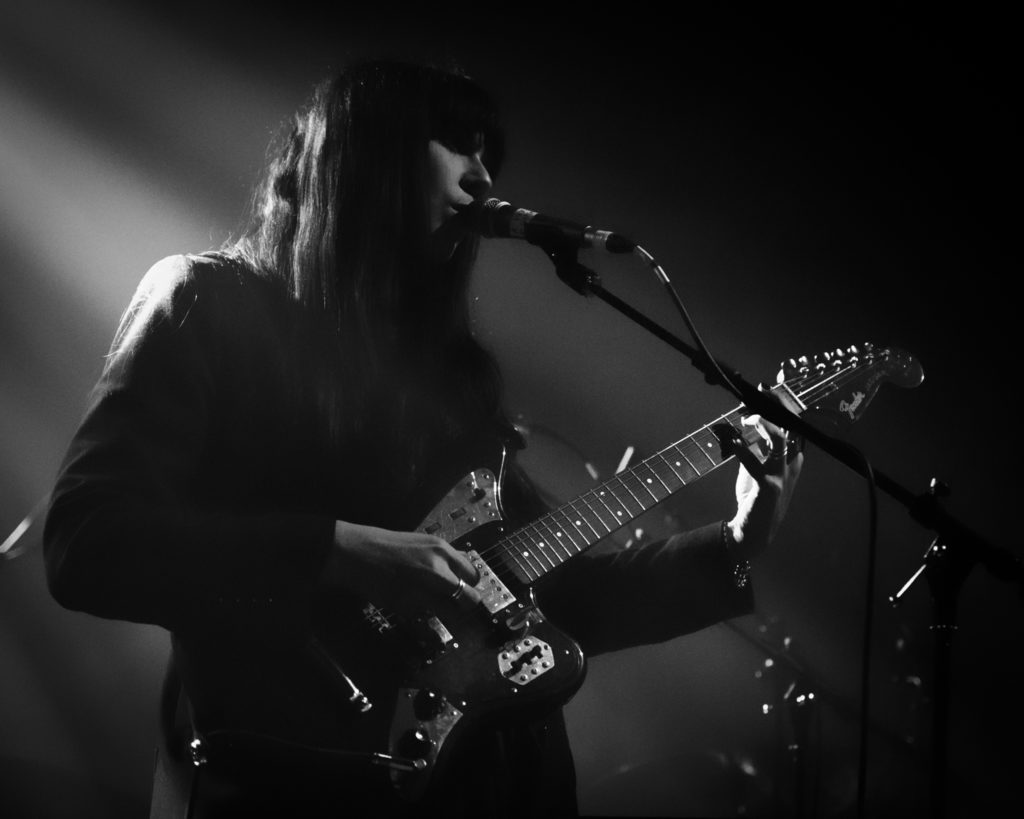
The London-based singer/songwriter rose to prominence last year, when she released her re-recorded demo as a debut EP on Holy Roar records. More recently, she has recorded and released a pair of singles with the weekend’s curators MONO; Exit in Darkness and Winter Light – further cementing her reputation for serene, sorrowful vocal performances. While her music is not heavy in the traditional sense, she shares an affinity with many of the other performers this weekend for delicate, emotionally wrought compositions which incorporate unconventional, post-rock textures. Her performance this afternoon, in the pleasingly reverberant Village Underground, shows neither restraint nor flamboyance, instead conveying a sincere vulnerability alongside her rock ensemble, exhibiting some new material and whetting anticipation for a full-length release which must, surely, be in the works.
Rating: 7/10
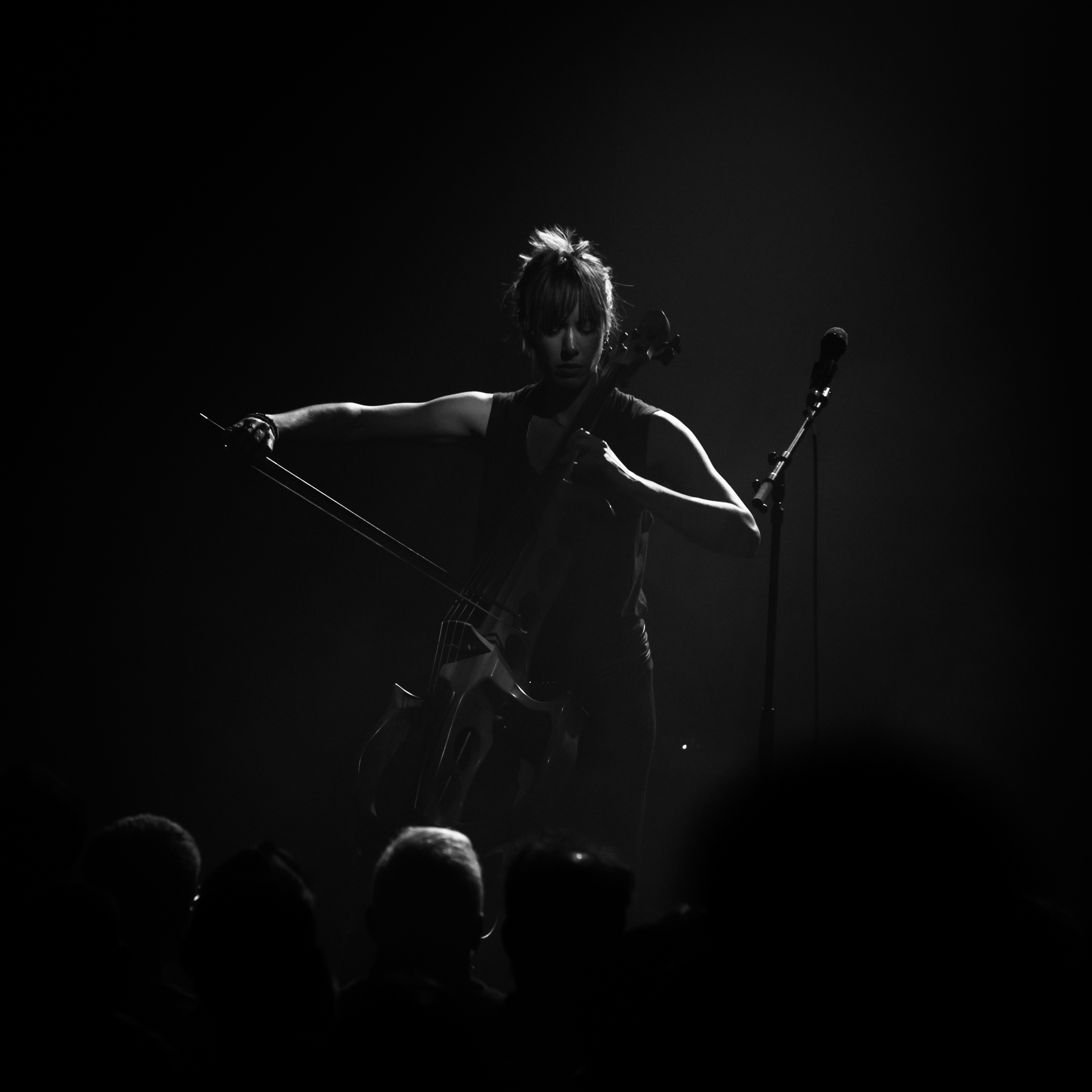
Over five full-length albums, in addition to a number of compilation appearances and notable collaborations, Jo Quail has made the cello a relevant instrument in post-rock music – drawing upon her classical education to craft innovative, dark and heavy instrumental music. This afternoon, the virtuoso cellist appears alongside her rock ensemble, and once again demonstrates her instrument’s versatility alongside guitars and drums when paired with an assortment of effects. There is a soundtrack-like quality to her instrumental compositions, which build deeply-layered and often rhythmic arrangements around a central motif or theme. The highlight of her performance is closing number Adder Stone, in which she extracts an industrial-sounding loop from the cello, gradually layering-in a melody before the song’s powerful, dramatic conclusion; the effect is more primitive than classical, and all the more potent for it.
Rating: 7/10
NORDIC GIANTS are an instrumental post-rock duo who, through their cinematic live performances, explore the boundary between the soundtrack and the music video. Dressed in shamanic feathered costumes, Loki and Rôka use keyboards, drums, spoken word samples, and a bowed guitar to breathe life into a series of curated or commissioned live-action film and animations projected behind them. These shorts vary in theme, but predominantly present either a critique of modern life, or a celebration of human compassion and kinship, and are lent a potent emotive nuance with NORDIC GIANTS‘ post-rock accompaniment. The duo perform with an uncanny synchronicity, both across the stage and alongside their projections, and seamlessly blend downtempo electronica and trip-hop elements into their sound. Their highly emotive performance traverses the bleakness of despair, the ecstasy of hope and soothing melancholy across a ninety-minute trajectory. Perhaps the highlight of their performance this afternoon is the surreal and apocalyptic The Last Breath – accompanied by Through a Lens Darkly and presented in two parts, effectively book-ending their set – in which people fight over the last oxygen tanks in a world depleted of breathable air. NORDIC GIANTS are visually and aurally stunning; curators of excellent film and animation, bringing their impassioned and uplifting music to life.
Rating: 8/10
Saturday – Barbican
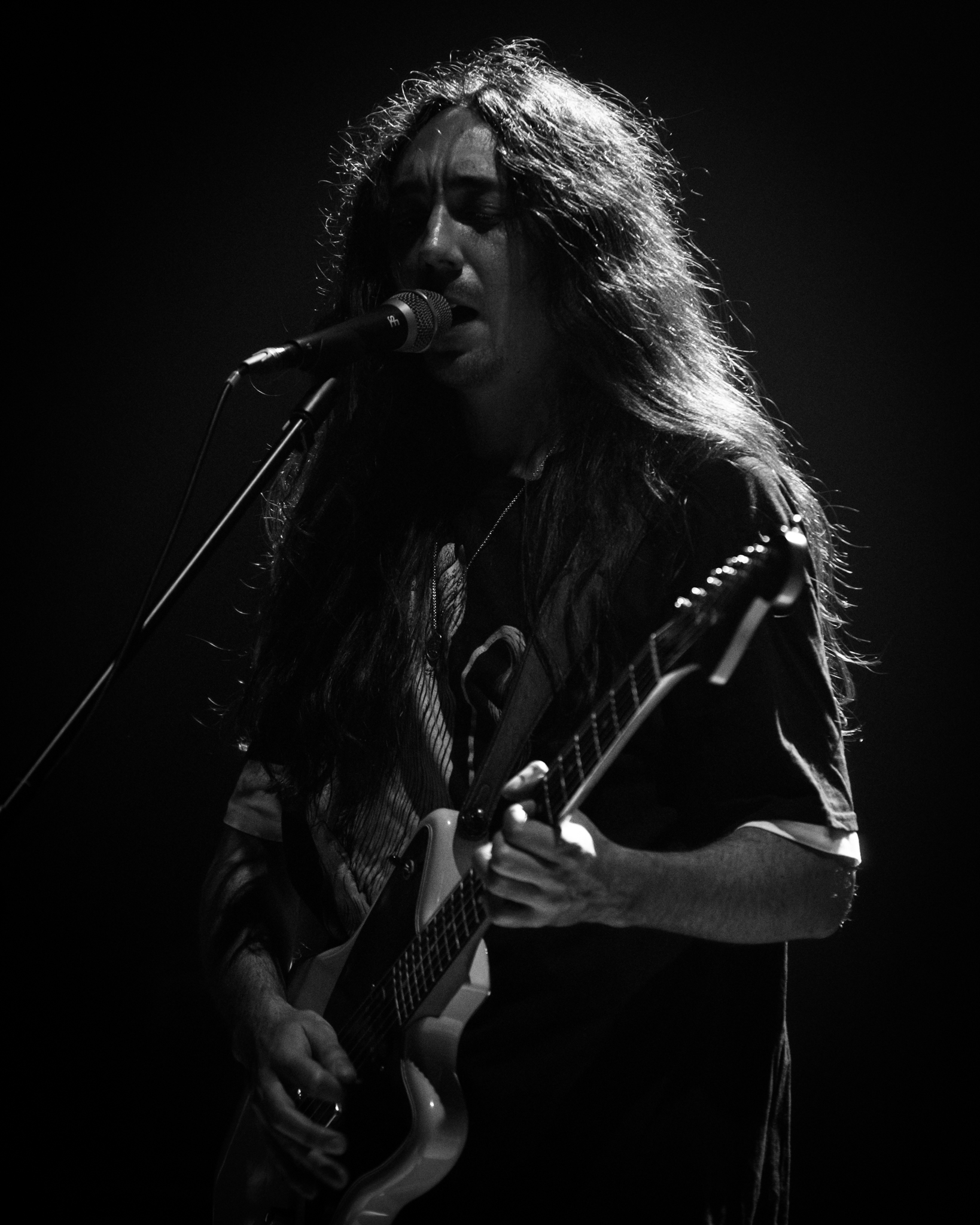
Ethereal choral chants and musky incense prepare the stage for the arrival of the Blackgaze pioneers at the Barbican hall this evening. ALCEST‘s performance tonight, their only London appearance of 2019, follows in the wake of the hugely successful Spiritual Instinct, and they bring a tremendous weight of anticipation with them. There is no fog or curtain to conceal the band, as they are poised at the very front of the stage, holding the room in a pregnant silence. As Neige breaks into the opening chords of Kodama a palpable sense of relief takes over the room and, for the next hour, this vast space is all theirs.
Next up are Sapphire and Protection, the singalong singles from Spiritual Instinct, which bring the audience to the performance’s fervent peak. So enthused in his performance, Winterhalter loses several drumsticks tying together the wash of delay and reverb in the guitars. ALCEST have matured considerably as a live act in the past decade, who no longer feel the need to hide behind shrieking vocals, distortion and blast beats, instead presenting themselves openly, and revelling in the gentler passages of their older material, especially the darkly soporific Percées de Lumière. As closing number Délivrance is brought to a close, Neige is left alone on stage and there is a certain vulnerability in his body-language; perhaps overwhelmed by the gratitude of his audience, who has been so utterly captivated by his song-craft this evening.
Rating: 9/10
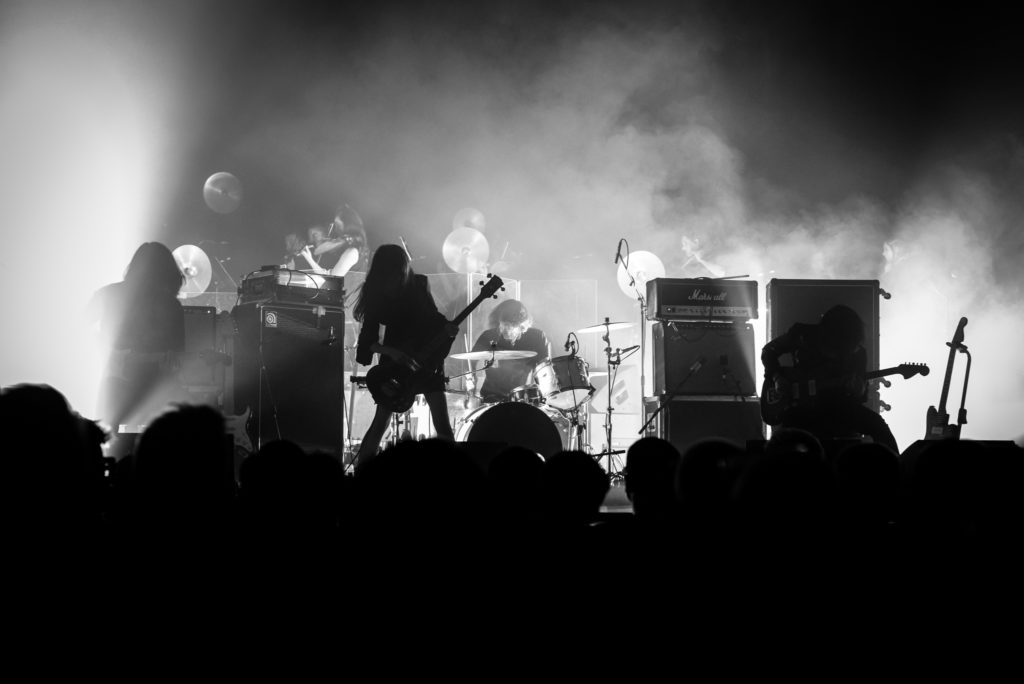
The stage was at last set for MONO to make their appearance alongside The Platinum Anniversary Orchestra. The stage of the Barbican hall is bathed in the soft light of filament bulbs, and filled with dormant instruments and vacant seats. Upstage the silhouette of a small orchestra, waiting in stillness for the band to take to the stage. Downstage centre is Dahm Majuri Cipolla‘s drumkit and a glockenspiel, flanked on either side by sets of amplifiers: to the left, Tamaki‘s bass stack, Taka‘s extensive pedalboard, and a concert piano, and on the right, Yoda‘s pedalboard. It is plain to see that something incredible is about to unfold. As the house lights dim, the audience wait in a hushed silence.
As MONO quietly take up their positions downstage, the orchestra strike up in opening piece God Bless, accompanied by the gentle whistle of idle amplifiers. The rock quartet join in the lilting introduction of After You Comes The Flood and as the piece falls into it’s dramatic rhythm, the stage comes alive with movement and light. Both ensembles are made nearly invisible by the intense brightness emanating from the stage, which seizes everyone in the room with the sheer theatricality of it all. As the track reaches it’s noisy crescendo, the quality of the sound mixing is fully apparent; powerful, without being overwhelmingly loud, each of the twelve or so musicians on stage – acoustic or amplified – can be heard with absolute clarity. For a band who identify more with contemporary classical music than with post-rock, a label they are assigned and have consistently rejected, tonight they are setting out to prove that the concert hall is more their home than the nightclub.
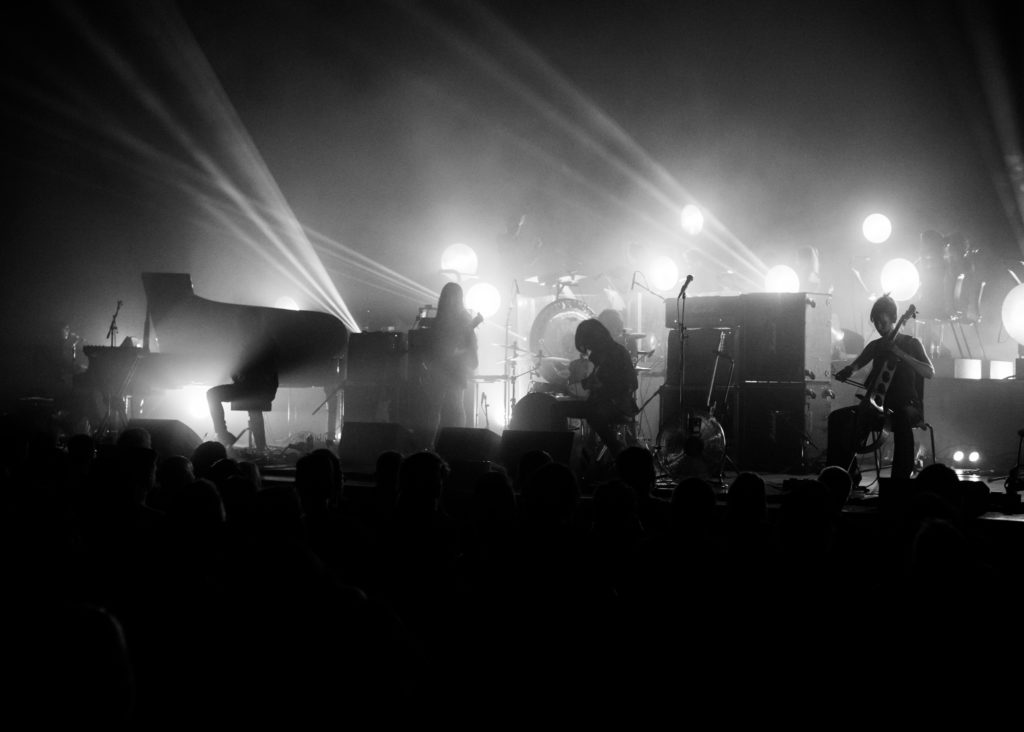
Bassist Tamaki takes to the microKorg synth for the atmospheric beauty of vocal-piece Breathe, accompanied by the quartet in their most restrained performance of the night. In their twenty year career, the band have become extremely proficient in dynamics, both in song-craft and in their performances, and this mastery comes to the fore on Nowhere, Now Here, a cinematic piece which builds, ebbs, and flows for ten minutes, gradually accelerating towards a noise-laced cacophony. MONO revisit some older pieces – Death in Rebirth and Dream Odyssey – before completing their showcase of their newest album with Sorrow and Meet Us When The Night Ends. Jo Quail joins them on stage to lend her considerable talents to their early classic Halcyon (Beautiful Days), after which the tell-tale tinkling of the glockenspiel gives away Ashes in the Snow – a piece the band have become almost synonymous with. It is remarkable how much passion MONO are able to exude in playing something they must, in honesty, have become rather bored with; a testament to their commitment to the craft. For the encore the orchestra falls silent, and A.A. Williams performs their collaborative single, the heartfelt and intimate Exit in Darkness, before joining Jo Quail on cello for closing number Com(?), an early, noisy post-rock odyssey, the perfect statement of where MONO have come from and where they are now, and a fitting choice to draw the curtains on what has been an eclectic, noisy and heartfelt weekend celebrating everything MONO.
Rating: 10/10
Check out our photo gallery of the Beyond The Past Anniversary from Karolina Janikunaite & Simon Kallas here:

